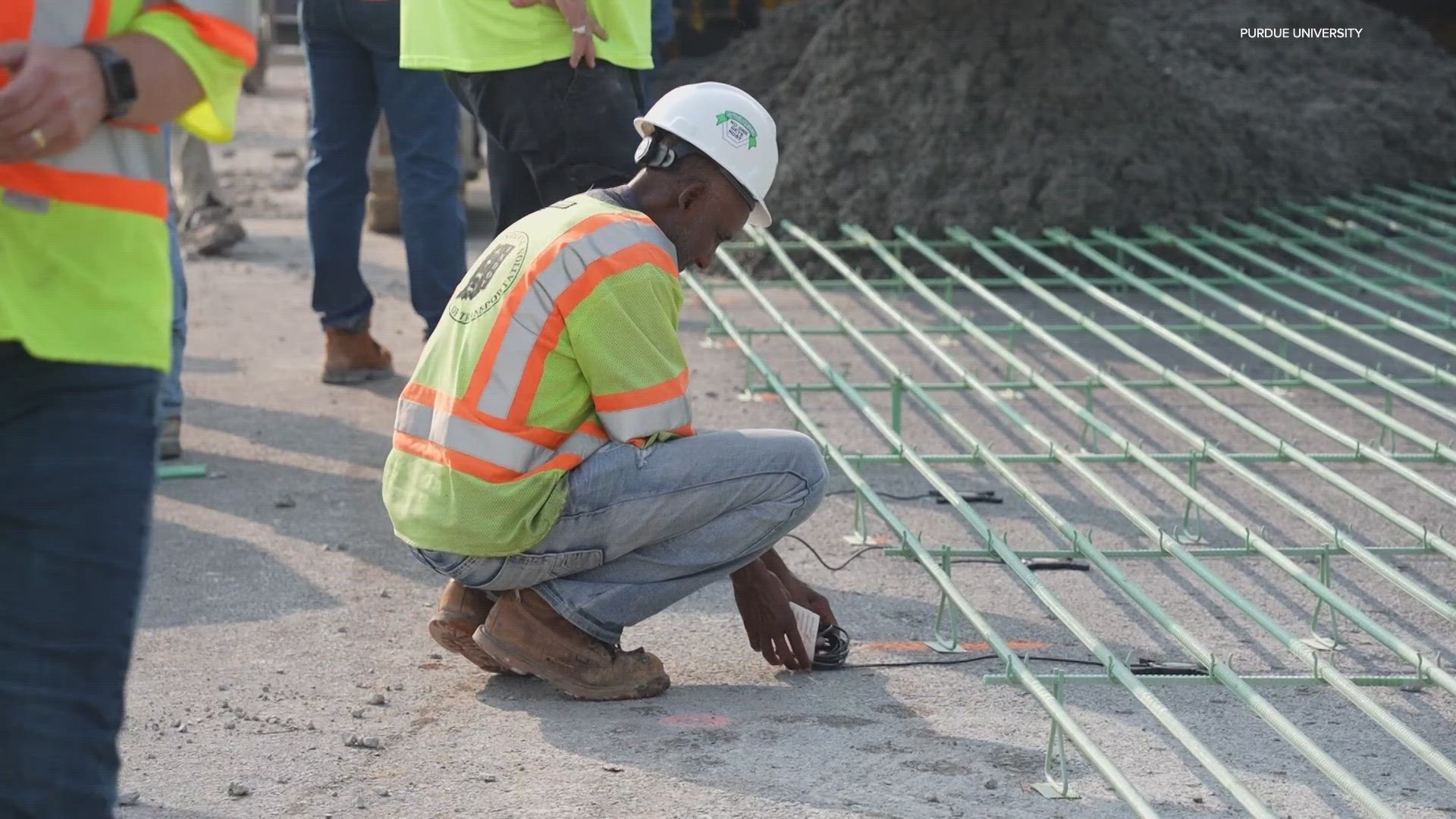INDIANAPOLIS — We all know potholes can be a pain, but now there's concrete with a high-tech twist that might be able to help.
It was installed Tuesday on Indianapolis' south side, part of the Interstate 69 Finish Line Project. Purdue researchers call it "talking concrete."
The big benefits for construction goes beyond just preventing potholes.
On the new I-69, you can't see it, but contractors will be able to hear it, so to speak. New technology embedded right into the concrete that communicates with them, letting them know whether a highway is strong or whether it needs to be fixed.
It could be a game-changer for our highways, saving money, reducing potholes and speeding up construction projects so road closures don't have to last as long.
Under the rebar, six star-shaped sensors send messages in real time about the road's strength and stability.
"Those data will give the DOT engineers and the contractors a lot of information," said Luna Lu, professor of civil engineering at Purdue. "They can use that information to make data-driven decisions, when they should open the traffic, when they should be doing repairing."
Lu invented the technology. It's being tested here as part of a nationwide pilot program. Normally, testing a road's quality is a cumbersome process, one invented a century ago, taking samples of concrete with cylinders. With this tech, you just lay a sensor in the pavement.
"Boom, five seconds, that's it. And then, as engineer or contractors, we can get information from cloud-based and you can look at the information on your iPad, on your tablets, on your cellphone," Lu said.
It's all in an instant. Is the highway strong enough to take traffic? Or is concrete getting weak and in need of repair?
"By using the sensor, we can detect the early signs that (a) pothole may be coming up before it becomes a major problem," Lu said.
The talking concrete is speaking to taxpayers, too. It's estimated these sensors could save 30% or more on road construction costs.
Purdue and INDOT plan to analyze data they get from the south side interchange over the next six months. The technology could then expand to other roads and highways.

